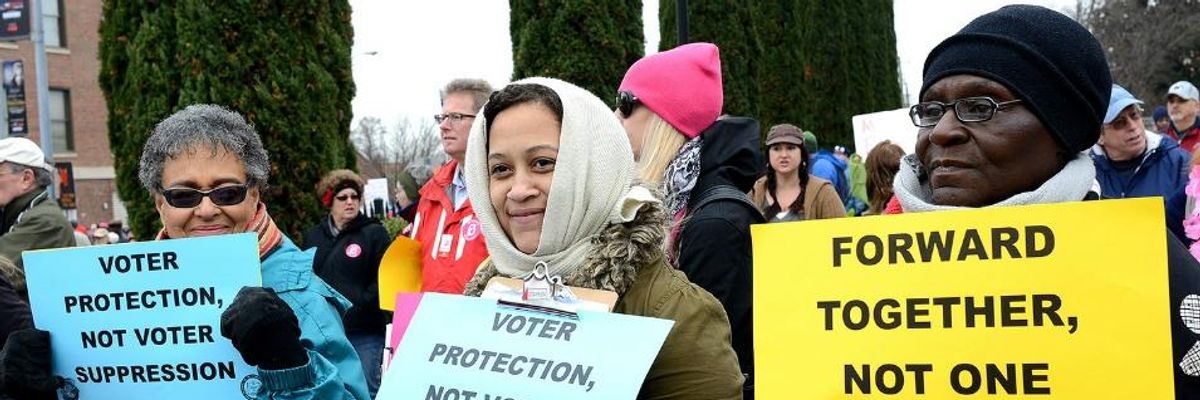Demonstrators with the Moral Monday Movement hold signs in Raleigh, N.C. in 2014. (Photo: Stephen Melkisethian/flickr/cc)
We turn now to North Carolina, where one of the country's most controversial and restrictive voter identification laws took effect for the first time in Tuesday's primary elections. The law, which was passed by the Republican-dominated North Carolina state Legislature in 2013, limits the forms of ID acceptable at polling places. As a result, about 5 percent of the state's registered voters, primarily African-American, are excluded from being able to cast a ballot. Under the law, student IDs, government employee IDs and public assistance IDs--forms of identification disproportionately held by African Americans--are no longer accepted. Passports, Motor Vehicle Department IDs and expired IDs for people over 70--identification disproportionately held by whites--are allowed. We speak to Bob Hall, executive director of Democracy North Carolina, a nonpartisan organization to increase voter participation.
Our work is licensed under Creative Commons (CC BY-NC-ND 3.0). Feel free to republish and share widely.
We turn now to North Carolina, where one of the country's most controversial and restrictive voter identification laws took effect for the first time in Tuesday's primary elections. The law, which was passed by the Republican-dominated North Carolina state Legislature in 2013, limits the forms of ID acceptable at polling places. As a result, about 5 percent of the state's registered voters, primarily African-American, are excluded from being able to cast a ballot. Under the law, student IDs, government employee IDs and public assistance IDs--forms of identification disproportionately held by African Americans--are no longer accepted. Passports, Motor Vehicle Department IDs and expired IDs for people over 70--identification disproportionately held by whites--are allowed. We speak to Bob Hall, executive director of Democracy North Carolina, a nonpartisan organization to increase voter participation.
